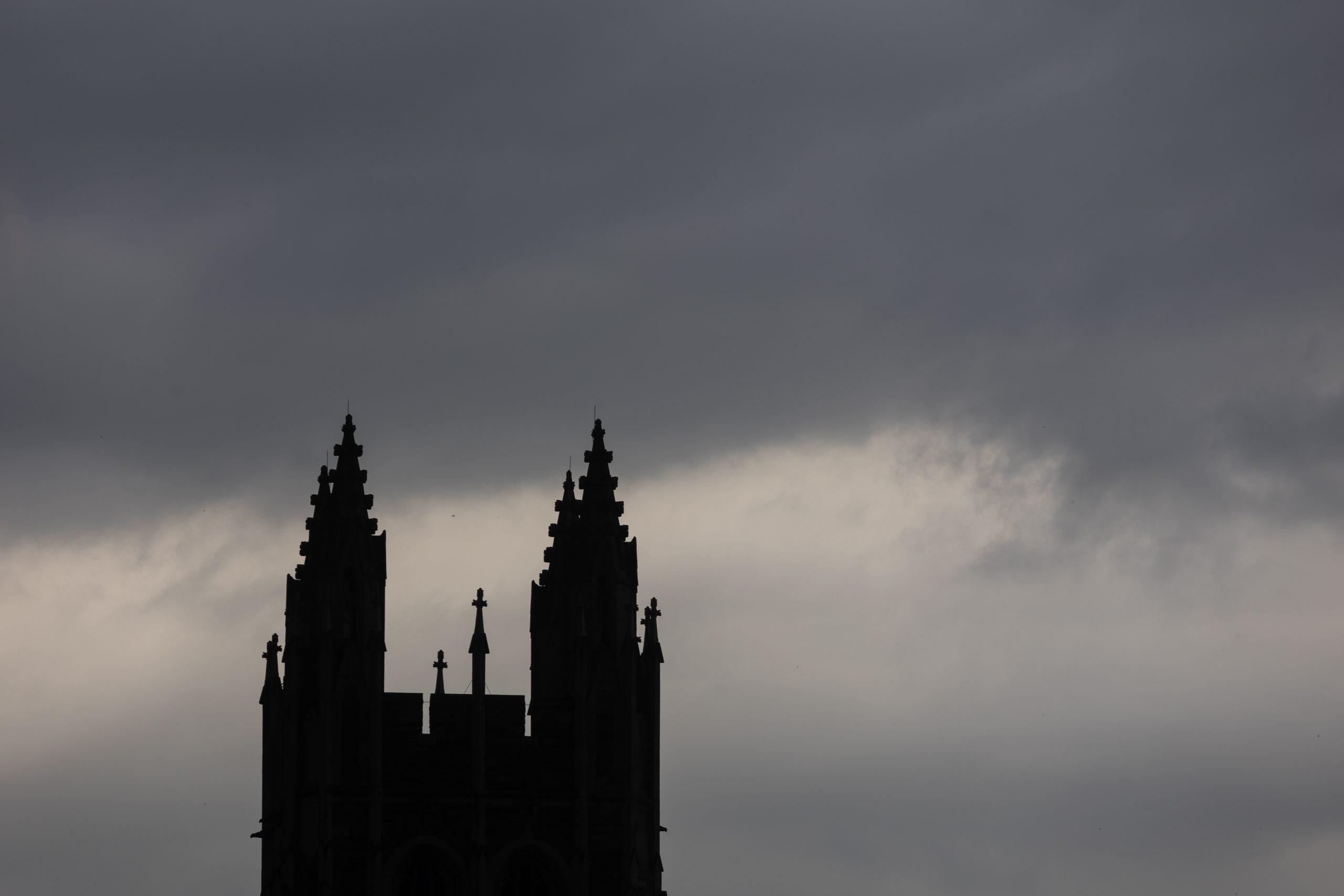Anna Kalafatis ’22 returned to campus from Thanksgiving break ready to take on her last two weeks of classes. But then she tested positive for covid-19 the Tuesday after she got back.
A LaFarge Residence Hall resident assistant, Kalafatis, who is fully vaccinated, had to abide by the university’s covid protocols by isolating for 10 days.
“As soon as my test came back positive, I was restricted from my room and from dining and had to get sent to Moore [Hall],” Kalafatis said. “I was like, absolutely not. So I drove home.”
While Kalafatis’ immediate quality of life issues were resolved, she had a more pressing one: not being able to attend class until Dec. 9. The semester ends Dec. 10.
According to the university’s health and safety plan for this semester, it is a student’s responsibility to make “arrangements for instructional continuity.”
Kalafatis had to negotiate with each of her five instructors for a plan to finish out the semester. Unlike past semesters, when many classes were online, Zoom was no longer a guaranteed option.
One instructor denied Kalafatis’ request to attend class via Zoom. Two instructors agreed to a Zoom class. One instructor offered to talk to her outside of class about what she missed. The instructor for her fifth class told her that she would not miss anything important while she was in isolation.
All the while, Kalafatis was dealing with symptoms from covid.
“When I’m tired and feel like crap, the last thing I want to do is be on the phone with student success and emailing my professors saying ‘how can I get into class?’” Kalafatis said.
The Hawk reached out to Cheryl McConnell, Ph.D., provost and vice president for academic affairs, for clarification of that policy.
In response, Gabrielle Lacherza, associate director of public relations, wrote in an email, “Students should communicate with each faculty member to determine the accommodation options and plans. The University offers thousands of courses each semester and there is no one approach to accommodations for course assignments, final exams and/or projects.”
Knowing that they might have to miss class for the rest of the semester, Kalafatis’ close contacts opted not to get tested and did not respond to messages from contact tracers.
“I’m on campus a good bit, and if I were to get tested, I would not be able to use my meal plan, I wouldn’t be able to go to classes and get the information I need to for my classes and I wouldn’t be able to utilize resources that I need to use on a day-to-day basis on campus,” said one of the contacts, who asked to remain anonymous.
The student said he was primarily concerned about finishing up his classes.
“I couldn’t afford to miss these upcoming presentations, especially my business policy presentation,” he said.
In an email to The Hawk, Kiersten White, Ed.D., assistant vice president for student life, said “When Contact Tracers inform close contacts of their exposure, they also educate them on the appropriate mitigation measures to take to prevent the spread of COVID-19. These measures include quarantining (if not fully vaccinated), testing, masking, actively monitoring for symptoms, etc.”
White also made it clear that “the university expects that community members ‘accept the responsibility to follow University COVID-19 mitigation policies and practices, including vaccine disclosure, masking and testing.’”
White said that disregard for the policies put in place could result in disciplinary action.
“I’m not really afraid of the repercussions because I go to this school for the education,” the student said. “Yes, I was sick, but it’s not fair to me that I have to be forced to do something that I feel as though I do not want to do.”
Judith A. O’Donnell, M.D., chief of infectious diseases, hospital epidemiologist and director of infection control at Penn Presbyterian Medical Center, said that even if you are vaccinated it is important to get tested if you do not feel well or come into contact with someone who has covid.
“You want to be a good citizen of your community and part of the way to do that is to get tested,” O’Donnell said. “You should go ahead and get tested. That’s because we know from science that some proportion of people who’ve had a significant exposure will go on to test positive even if they’re vaccinated.”
Kalafatis said she greatly appreciated the efforts by the dean’s office in the Haub School of Business, the Office of Student Success and her professors, to figure out a solution. But she said it was ultimately the university’s policy not to guarantee a virtual option for students with covid that made finding a solution difficult.
“If I didn’t advocate for myself, and if I didn’t throw basically all the spaghetti at the wall to make something work for myself to get back into class, I would just be completely out of luck,” Kalafatis said.















































